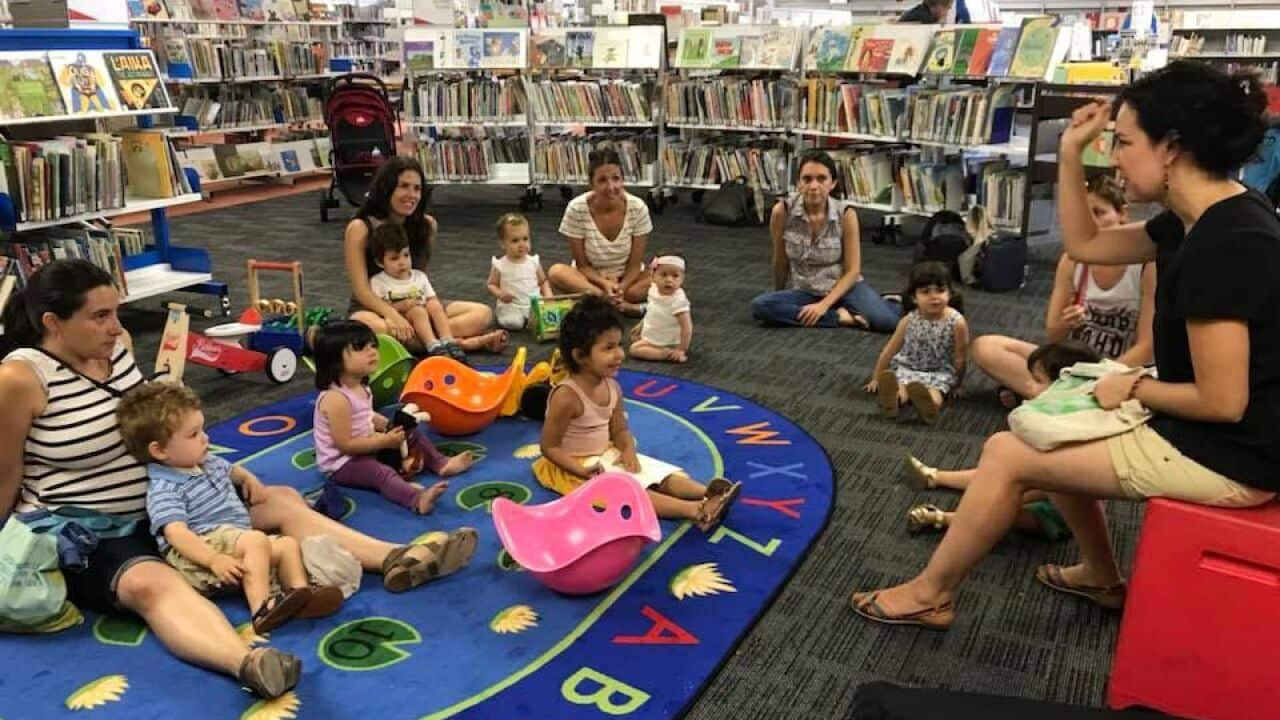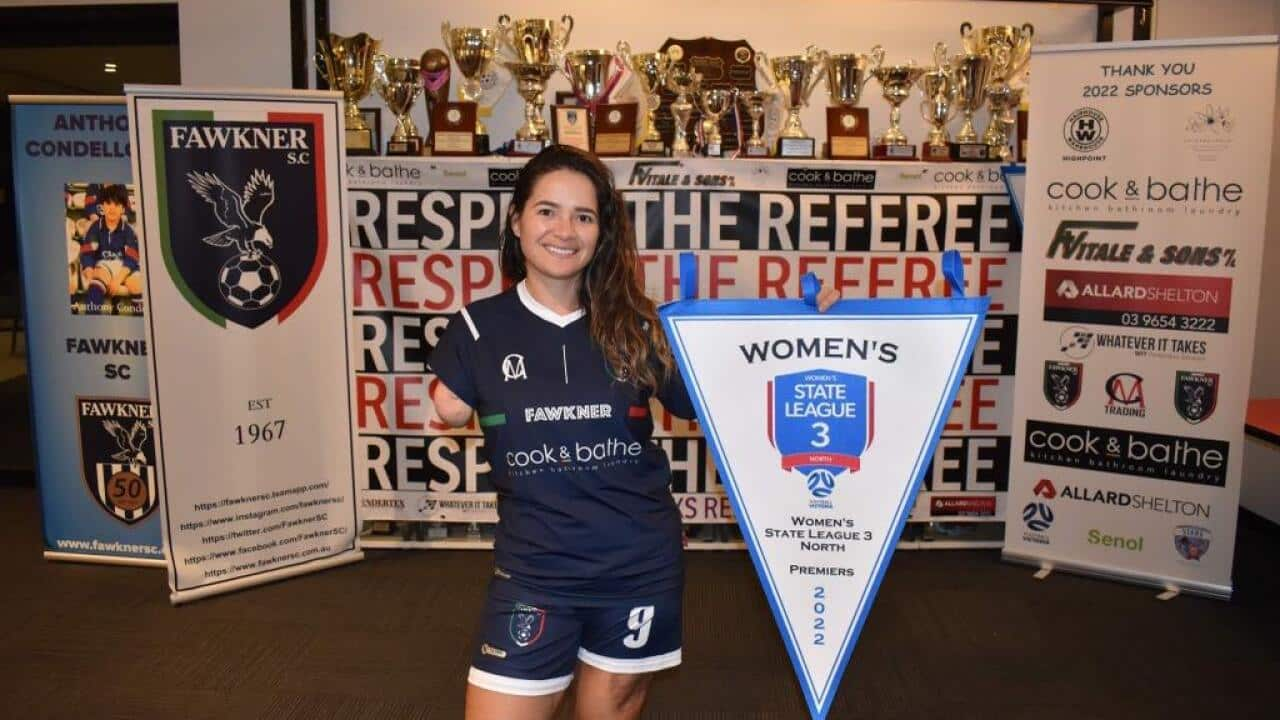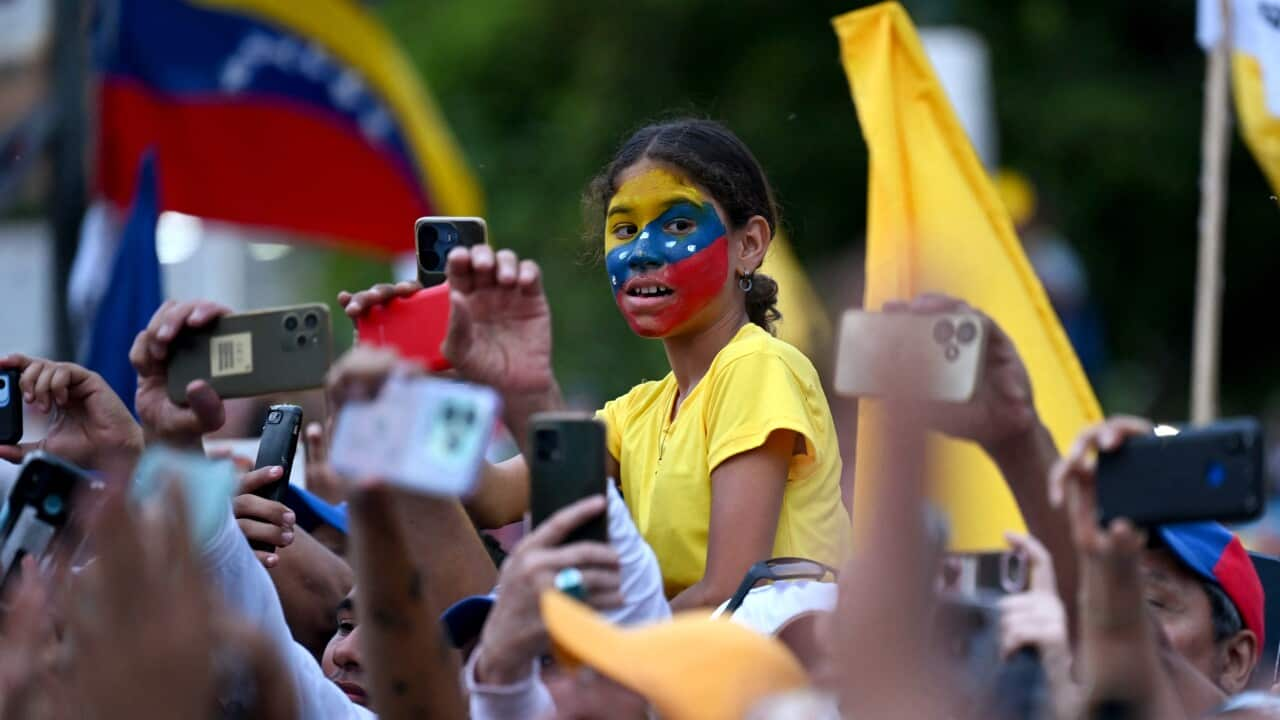Highlights:
- A group of Hispanic mothers in Melbourne established a Spanish storytelling club to transmit their native language to their children.
- The meetups, which take place at St Kilda Library once a month, have attracted a diverse audience that goes beyond Spanish-speaking families.
- Storytelling volunteer Daniela Robles says reading to children should not be viewed as a chore, but as an opportunity for play.
Every first Wednesday of the month, St Kilda Library is flooded with young guests whose laughter and multilingual chatter fill the venue.
Daniela Robles, a Mexican volunteer, greets them with a new story in Spanish and together they immerse themselves in a world of words and imagination.
This storytelling project in the southeast Melbourne suburb emerged five years ago as the initiative of a group of Spanish-speaking mothers.
Initially, they just wanted a playgroup that allowed their children to interact with other kids of Spanish-speaking descent.
But the need to maintain the language meant that these women gradually integrated reading into their activities.
According to the , there are 171,370 Spanish speakers in Australia, an increase of 21.7 per cent since 2016.
Upon noticing the group's enthusiasm for books, staff invited them to become an established part of the library program.

Children's readings in Spanish take place on the first Wednesday of each month in the St Kilda Library. Credit: Supplied
We have many families where only the father or mother speaks Spanish. And it's not unusual that suddenly, an Australian mum or a French dad, or someone of any other nationality, brings their kids to hear stories in Spanish.Daniela Robles, Mexican storyteller
“Sometimes families who happen to visit the library the same day as we hold the session decide to stay and participate. That's really nice when it happens.
"There are also locals, who don't speak Spanish and who have nothing to do with the Spanish language, but who like to expose their children to other languages.
“It's really nice to see such a diverse community,” she said.
The sessions are predominantly attended by children aged up to five years old. Parents also take advantage of the space to interact with each other and to expose their children to books and other languages.
The Mexican storyteller explained that while illustrations go some way towards conveying the messages in the books and helping to break the language barrier, she believes the most important things to make reading attractive are sound and movement.
Print versus digital
Ms Robles, who has a degree in information technology management, began attending the storytelling club motivated by her two young children, who have picked up her love for books.
For eight months now, she and another woman, Daniela Díaz, have shared stories in Spanish to an enthusiastic crowd.
Ms Robles said that in order to maintain the kids' attention during the readings, she relies on theatre and singing training she acquired many years ago in Mexico, in addition to skills in reading aloud she picked up from the founder of this project, Liliana Cisneros.
She said she always wanted her children to develop an affinity with print books.
“Although I work with technology, I do try to avoid my children's exposure to screens and electronic devices, especially at such a young age. For me, the time that a child spends in front of a screen is time that could be used not only to read books, but to play and to explore."
"And there's nothing that ignites a child's imagination like a book, it's really incredible,” she said.

Daniela Robles is a Mexican storyteller who reads aloud to children once a month at the St Kilda Library Credit: Supplied
"I believe that the more we expose our children to reading, the better readers they will be when they grow up."
Starting early
Ms Robles said that ever since her children were young she made it a habit to visit the local library frequently and let them explore the books - even if they didn't yet know how to read, they were creating a bond.
Simply allowing them to see the images is enough to turn on a lightbulb in their minds.Daniela Robles
"St Kilda Library has a very large collection of books for children, and even stories in Spanish. It also has a lot of storytelling sessions, whether in English, Spanish or other languages,” she said.

The youngest son of Daniela Robles in the library enjoying the books. Credit: Supplied
“My children won't go to sleep without reading at least one book and that's something that they're asking me, it's not something that I'm forcing on them. It's a habit that they already have and that they enjoy a lot.
"Spending time together at night is a beautiful thing."
She said exploring children's books also has benefits for her as an adult.
“I have learned to return to my childhood and allow myself to be playful again. The truth is that a lot of times the child doesn't even care if suddenly the thread of the story is lost, if you were wrong and you said something wrong, that's the least of it," she said.
When reading aloud for children, she advises adults to be playful, explore sounds, develop different voices, connect with characters and lose their fear of ridicule.

Daniela Robles' eldest daughter enjoys reading. Credit: Supplied
Spanish storytelling activities take place on the first Wednesday of every month at , in the children's section, at 2pm.
Press PLAY at the top of the page to listen to the full interview in Spanish.







